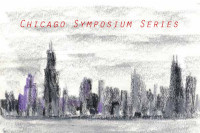University of Wisconsin-Madison
The connections between culture, ethnicity, gender, and chemistry may not be immediately obvious. In fact, to some one of the strengths of a discipline, such as chemistry, is that it is "objective" and "culture free." How do we rethink a discipline, such as chemistry, in terms of race, ethnicity and gender? How can science courses be more inclusive of the life experiences of a variety of people, and be more responsive to the needs of those who enroll? This talk will examine the issues involved in culturally inclusive teaching, including a look at the difficulties that one might encounter along the way.
Catherine Middlecamp is the Director of the Chemistry Learning Center at the University of Wisconsin-Madison. Over the past 20 years, she has designed, supervised and taught in a number of programs for students under-represented in the sciences, both at the collegiate and pre-collegiate levels. Currently, she teaches general chemistry and a graduate seminar on teaching, and is serving on several national advisory boards, including "Women and Scientific Literacy" at the American Association of Colleges and Universities, the task force for Women and Diversity at Project Kaleidoscope, and Montana's Rural Women and Girls in Science Project. She is the editor of a web-based discovery based laboratory project in Puerto Rico, and is a co-author of the recently published Chemistry in Context, 3/e, a project of the American Chemical Society. Middlecamp did her undergraduate studies at Cornell University (1968–72) graduating Phi Beta Kappa and with distinction in all subjects. She was awarded a Danforth Fellowship for graduate study and earned her doctorate degree in chemistry at the University of Wisconsin-Madison (1972–76).

